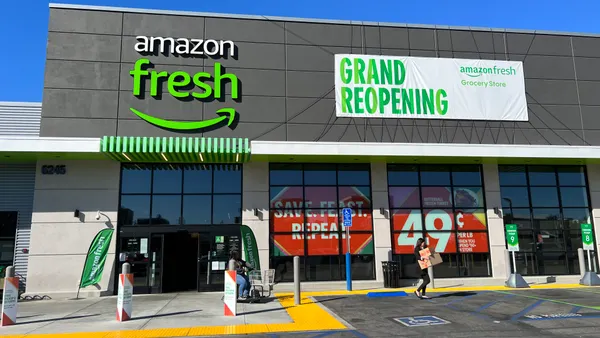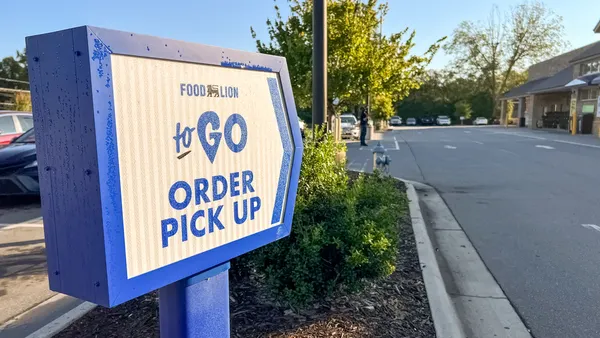Dive Brief:
- Postmates confidentially filed for an initial public offering on Thursday with an estimated valuation of more than $1.85 million, according to Bloomberg.
- The company said it completes 5 million deliveries per month, including grocery delivery, and is expected to record $400 million in revenue in 2018 on food sales of $1.2 billion.
- It would become the second third-party delivery provider after Grubhub to become public.
Dive Insight:
Although specific terms weren't released, Bloomberg's $1.85 billion estimation is surely good news for Postmates, which is currently a partner with Walmart. As recently as October, Postmates was valued around $1.2 billion, but additional rounds of funding have brought that valuation up ahead of the IPO filing.
With the added investments from an IPO, Postmates — which now covers more than 550 U.S. cities — should be able to expedite its expansion to even more markets. The company also should enable Postmates to quickly evolve its technologies and kick in some funds for marketing — strategies its closest competitors are focusing on. Grubhub, for example, acquired payments and loyalty company LevelUp last year and inked a deal with Blue Apron to deliver meal kits in October. Both Uber Eats and DoorDash have partnerships with Walmart, with Uber Eats testing grocery delivery in Dallas and Orlando, and DoorDash in Atlanta. On the technology side, Postmates could more quickly rollout its autonomous delivery rover, Serve, which is aimed at delivering more efficiently through cities.
The aggregate space is certainly crowded and these types of differentiators are important. Postmates could use the boost. The grocery delivery space is competitive and Postmates, Grubhub, Uber Eats and DoorDash fall behind more popular services like Instacart and FreshDirect.
Just last week, Instacart's CEO Apoorva Mehta said an IPO filing is definitely possible in the near future. The company is valued at about $8 billion after raising $271 million in funding in November. But the company continues to struggle with public disputes over worker tipping policies, which it again updated earlier this week. But a time may come when retailers have enough and lean into their own grocery delivery platforms like Whole Foods, which parted ways with Instacart last year.
If Instacart continues to struggle, it could make space for restaurant-focused delivery platforms like Postmates and Uber Eats to sweep in. However, if Instacart proves to be resilient and files an IPO, moving into grocery delivery could be more difficult for Postmates.
Investors’ optimism isn't surprising when considering the growth trajectory of delivery demand. McKinsey & Company estimates that the global online food delivery market will grow by about 15% annually each year until 2020. But going public doesn't mean an automatic win for Postmates.
Perhaps the bigger question is how much investors will be willing to spend — and how long they'll be willing to exert patience — on fledgling service models that struggle to turn a profit, as delivery companies have. There also seems to be added tumult in the delivery space as some companies — like Kroger and Walmart — invest in developing their own delivery platforms and may eventually revolt against third-party companies in favor of their own fleets.













